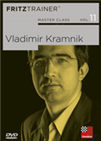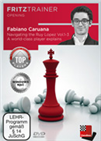The dream team
Starting in 1976, the Chess Olympiads were organized as Swiss system open tournaments. From 1978 until 2004, each event lasted 14 rounds, except in 1998 when problematic political circumstances in Kalmykia shortened the tournament by one round. Eight years later, the 2006 edition in Turin reduced the number of rounds to 13, while in 2008 the tournament was further shortened to 11 rounds. That was not the only relevant change to the format, as 2006 was the last year in which the final rankings were decided by individual points — from 2008 onwards, the rankings were determined by match points.
Coincidentally, it was in these two editions (’06 and ’08) that Armenia obtained consecutive gold medals. They scored the most individual points both in Turin and Dresden.
The Armenians were left out of the medals at the 2010 edition in Khanty-Mansiysk, but continued to show the importance of team spirit in 2012, when they won their third gold in eight years in Istanbul.
Vladimir Akopian’s undefeated performances were crucial to get the titles in Italy and Germany. Reflecting on the success of the national team in a lengthy interview with Sagar Shah, Akopian remarked:
 Of course, the Armenian team wasn’t the strongest in these tournaments. [...] Everybody who played in the team was trying to give his best and it worked. Also, I must mention that the President of our Chess Federation, Serzh Sargsyan, put a lot of faith in the team. He helped create a positive atmosphere. Somehow, he motivated us and kindled a winning spirit in the team.
Of course, the Armenian team wasn’t the strongest in these tournaments. [...] Everybody who played in the team was trying to give his best and it worked. Also, I must mention that the President of our Chess Federation, Serzh Sargsyan, put a lot of faith in the team. He helped create a positive atmosphere. Somehow, he motivated us and kindled a winning spirit in the team.
Winning for the first time is never easy but once we had won our first Olympiad, we had a feeling that we could do this. After that, we were a lot more confident. Of course, it’s not that this would always work. Luck also plays an important part. We had our share of luck in almost all of these tournaments
The experienced grandmaster concluded:
I would still say it is difficult to tell how we won, though, because there were so many strong teams. We had decent players in the team, not top players — except maybe Aronian — but still strong players. And all of us scored decently well. So, perhaps, as individual players, we weren’t the strongest but as a team we were very tough.
Besides the support of Serzh Sargsyan — who was the President of Armenia from 2008 until 2018 — the passionate work of team captain Arshak Petrosian was also key in getting these three successes.
[Pictured: Akopian receives the medal of honour in 2012 from the hands of Serzh Sargsyan]
Turin 2006: A peaceful finale
 This DVD allows you to learn from the example of one of the best players in the history of chess and from the explanations of the authors (Pelletier, Marin, Müller and Reeh) how to successfully organise your games strategically, consequently how to keep y
This DVD allows you to learn from the example of one of the best players in the history of chess and from the explanations of the authors (Pelletier, Marin, Müller and Reeh) how to successfully organise your games strategically, consequently how to keep yThere was no drama in Armenia’s win in Turin. The eventual champions won their first four matches and were paired up against the perennial favourites at the time — Russia. Both teams had the exact same amount of points and traded wins on boards 1 and 4 to draw their matchup. Vladimir Kramnik beat Aronian on top board, but Sargissian equalized for the Armenians by beating Alexander Morozevich.
Armenia took the sole lead the very next round, when they beat Uzbekistan thanks to Akopian’s win over Alexei Barsov on board 2, while the Russians were stunned by the Netherlands — Friso Nijboer defeated Sergei Rublevsky in the only decisive game of the match.
The team led by Aronian never looked back, beating the Netherlands, Cuba, Ukraine, China and Czeck Republic from rounds 7 to 11 to get a 3½-point lead with two rounds to go. Pragmatically, the Armenians drew on all four boards against France and Hungary to secure the title.

Gold medallists Armenia, led by Levon Aronian on the right | Photo: Frederic Friedel
Individually, Akopian and Sargissian were the strongest. In fact, Akopian was the fourth strongest performer on board 2, and it is very likely that he would have obtained a medal had he fought for wins in his last two games.


See more info at OlimpBase.org
All games of the Armenian team - Turin ’06
Dresden 2008: Photo finish
 The Ruy Lopez is one of the oldest openings which continues to enjoy high popularity from club level to the absolute world top. In this video series, American super GM Fabiano Caruana, talking to IM Oliver Reeh, presents a complete repertoire for White.
The Ruy Lopez is one of the oldest openings which continues to enjoy high popularity from club level to the absolute world top. In this video series, American super GM Fabiano Caruana, talking to IM Oliver Reeh, presents a complete repertoire for White.Things did not run as smoothly in Germany, when the format that is still in use to this day was tried for the first time: an 11-round Swiss open with accelerated pairings and match points determining the final rankings.
Curiously, Armenia was paired up against Italy in round 1 — Aronian, who would later hold the second spot in the world rankings for a long time, faced a 16-year-old Fabiano Caruana, who is currently, and has been for a while, the second highest-rated player in the world. Aronian beat the 2640-rated youngster and led his team to a 4:0 inaugural victory.
Armenia won in rounds 2 and 3 as well, but could only draw the strong Ukrainian team in round 4. Victories over the Netherlands and Azerbaijan once again set up a deciding matchup against co-leaders Russia in round 7. Much like in 2006, Sargissian defeated his Russian opponent — Alexander Grischuk — except that this time around the full point did not equalize the score but gave his team a crucial victory over the favourites.
A clear 3½:½ win over France followed. And then came the setback: a loss against Israel. Aronian was defeated by Boris Gelfand and Tigran Petrosian, who had not played in the previous edition, lost against Maxim Rodshtein, which meant Sargissian’s win on board 3 was not enough even to scrape a point. Israel had taken the sole lead, and was one match point ahead of Armenia and Ukraine.
Ukraine beat Israel and Armenia beat Serbia in round 10, so the two teams were sharing the lead with one round to go, with Israel and China trailing by a point. In the deciding day, Ukraine was stunningly defeated 3½:½ by the United States, while Armenia drew on the three top boards against China. Tigran Petrosian gave his team a second consecutive gold medal, beating Li Chao with the white pieces on board 4.

Winners, again | Photo: Natalia and Carsten Straub


See more info at OlimpBase.org
All games of the Armenian team - Dresden ’08
Links


















 Of course, the Armenian team wasn’t the strongest in these tournaments. [...] Everybody who played in the team was trying to give his best and it worked. Also, I must mention that the President of our Chess Federation, Serzh Sargsyan, put a lot of faith in the team. He helped create a positive atmosphere. Somehow, he motivated us and kindled a winning spirit in the team.
Of course, the Armenian team wasn’t the strongest in these tournaments. [...] Everybody who played in the team was trying to give his best and it worked. Also, I must mention that the President of our Chess Federation, Serzh Sargsyan, put a lot of faith in the team. He helped create a positive atmosphere. Somehow, he motivated us and kindled a winning spirit in the team.




